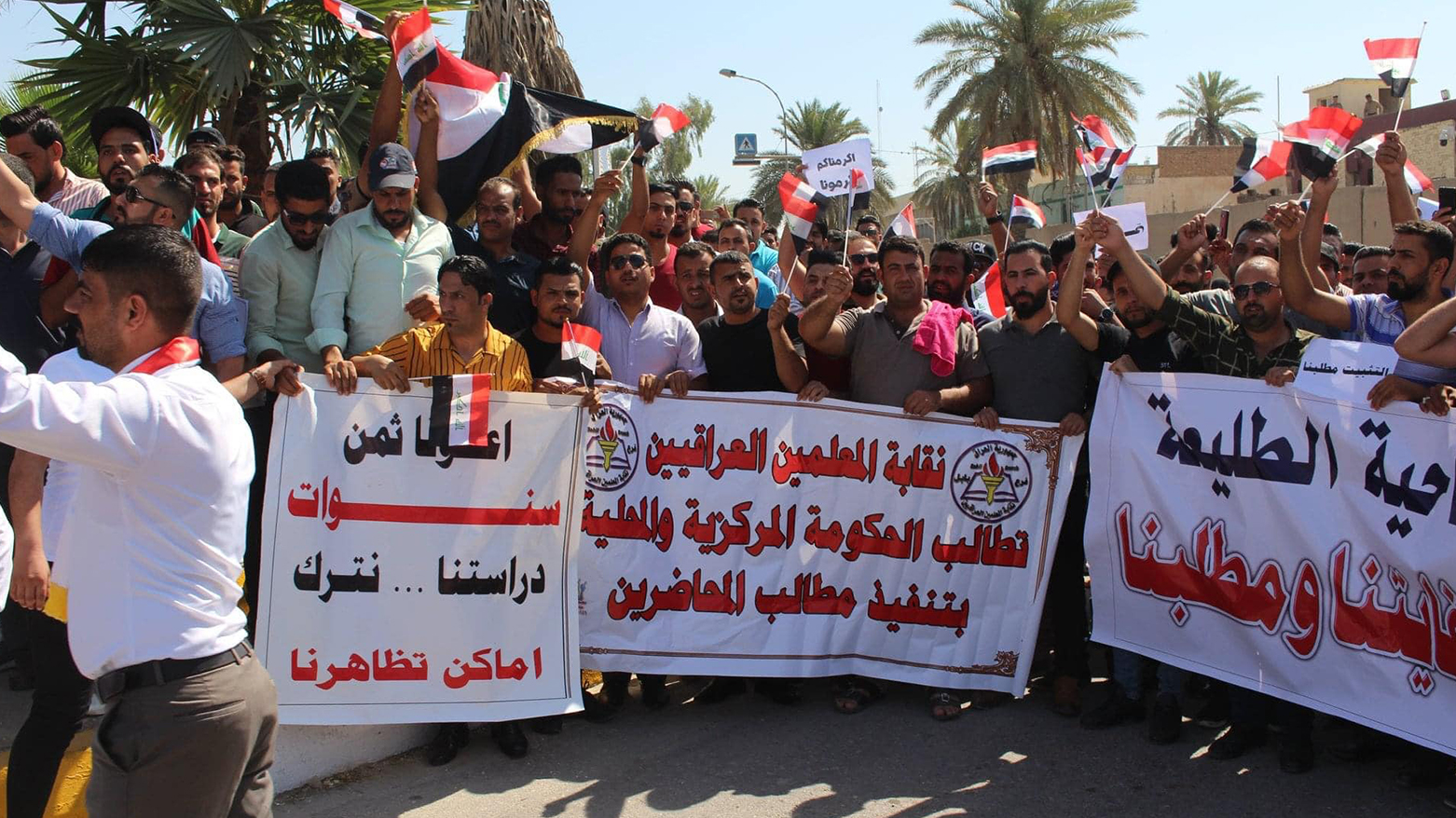Teachers Demand Real Reform, Not Symbolic Decrees
Teachers' Strike Persists Across Iraq Despite Parliamentary Measures: “Salaries Can’t Feed Families, and Promises Remain Ink on Paper”

By Ahora Qadi
ERBIL (Kurdistan24) – Iraq’s public education sector continues to endure a near-total shutdown, as thousands of teachers and school staff persist in a nationwide strike over inadequate salaries and worsening economic conditions. The strike, which has gripped the country for weeks, shows little sign of abating, despite recent attempts by the Iraqi Parliament to diffuse the crisis through a series of hastily passed resolutions.
Many schools remain closed, while others operate under partial lockdowns as educators voice growing skepticism over the government's willingness—or ability—to translate its words into action. At the heart of the unrest lies a shared grievance: that teachers' salaries no longer cover even the most basic household expenses in the face of soaring inflation.
Speaking to Kurdistan24, Thanaa Hadi, a teacher at a Baghdad school, lamented the financial precarity faced by many of her colleagues. “A teacher needs a dignified income,” she said. “The salaries—especially for newly appointed staff—barely reach 400,000 dinars. With the current cost of living, this doesn’t even cover a quarter of what we need. Most male teachers are forced to work side jobs just to put food on the table.”
In response to the mounting pressure, Iraq’s Council of Representatives convened a special session to address the growing discontent. According to MP Faleh al-Khazali, lawmakers approved the reactivation of the long-shelved Teacher Protection Law, pledged to review grant policies, and promised to formalize contract positions—all while committing to improved infrastructure investment in the education sector nationwide.
Despite these declarations, the Teachers’ Coordination Committee in Dhi Qar Governorate announced its intention to continue the strike. In a statement issued Saturday, the committee stressed it would remain in place until both the Parliament and the Cabinet complete their deliberations and meet what it called the educators’ “legitimate demands.”
This comes in the wake of conflicting reports from school administrators in Dhi Qar, who declared the official resumption of classes on Sunday, April 12. However, teachers have openly challenged this directive, highlighting unresolved grievances—especially concerning incidents of violence that accompanied recent protests.
The Coordination Committee confirmed that its representative had concluded a meeting with the Iraqi Prime Minister’s advisor, during which a formal request was submitted to establish a high-level investigative committee tasked with probing the crackdown on teachers during last week’s demonstrations.
Those protests, which erupted across several Iraqi provinces including Dhi Qar, saw educators demanding fair wages and improved professional conditions. They also called for parity with employees in other ministries, arguing that education remains the backbone of any stable society.
In Dhi Qar, the demonstrations were marred by violent altercations. Protesters, including teachers and school staff, suffered various injuries after being allegedly assaulted by security forces.
During a reconciliation session held on Friday, Thi Qar Police Chief Major General Najah al-Abidi pointed fingers at a so-called “third party” for orchestrating the violence that overshadowed the teachers’ otherwise peaceful protest. The local education directorate later issued a formal condemnation of the attacks, stressing the need to safeguard teachers' rights and calling for accountability for those responsible.
With public confidence in governmental promises continuing to erode, Iraq’s education sector teeters on the brink of a prolonged crisis—one that not only jeopardizes the academic future of an entire generation, but also further deepens mistrust between educators and state institutions.
As the strikes stretch on, it remains unclear whether policymakers can deliver swift and credible reforms, or whether the nation’s teachers will be left waiting—once again—with promises that never leave the page.